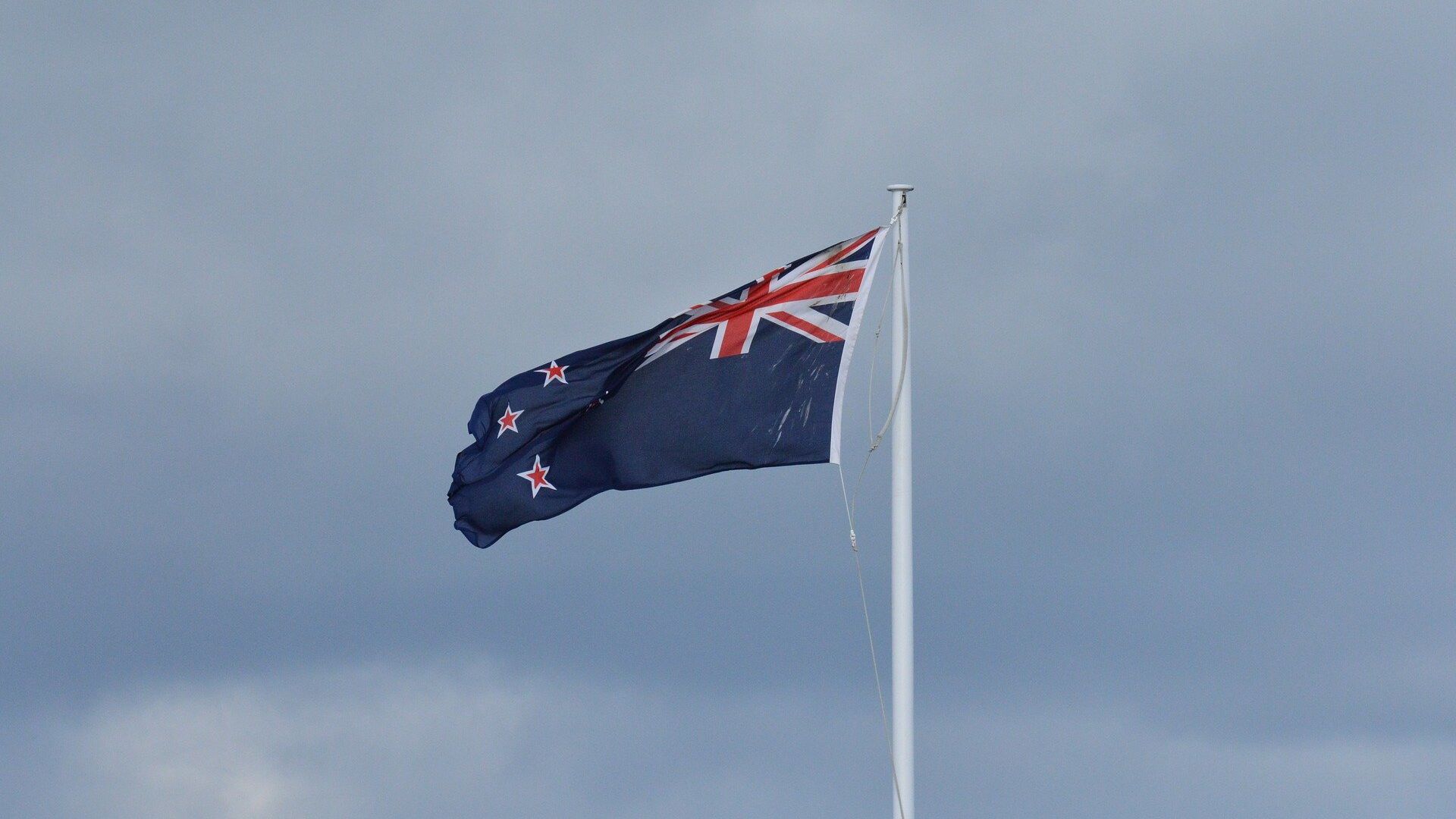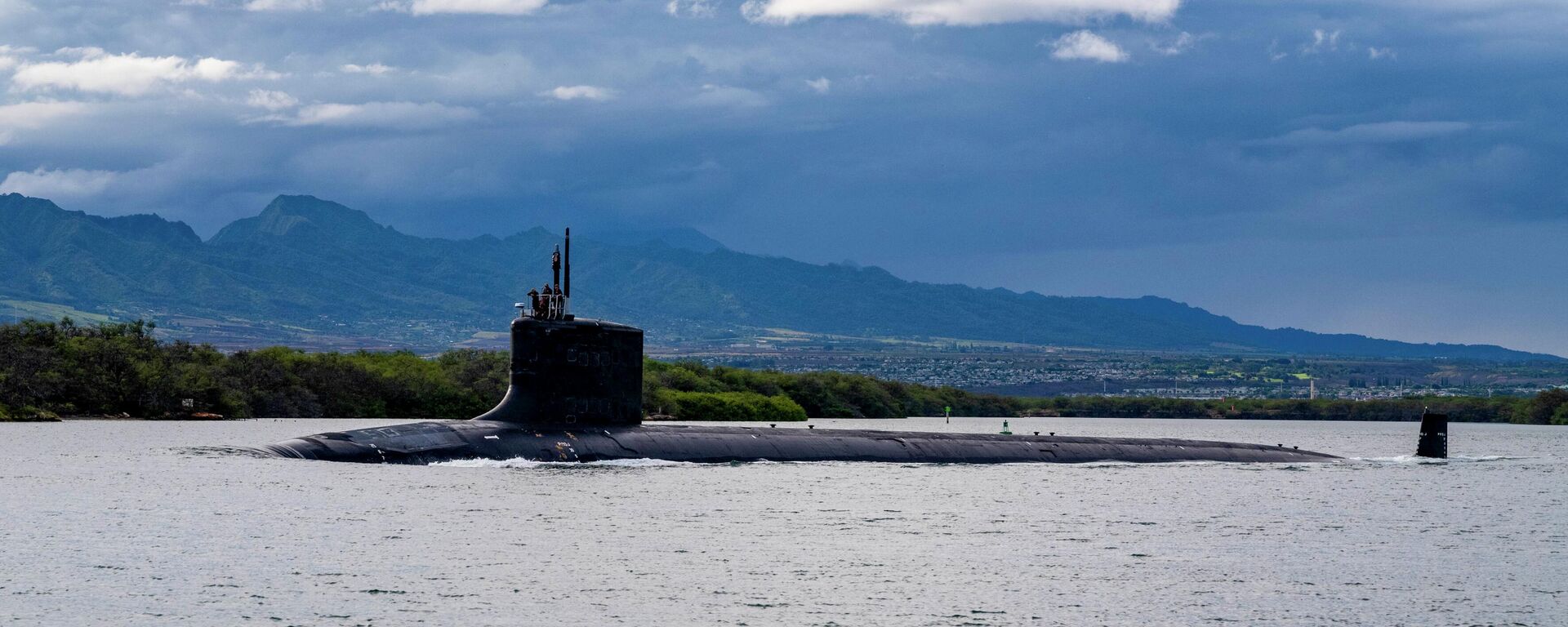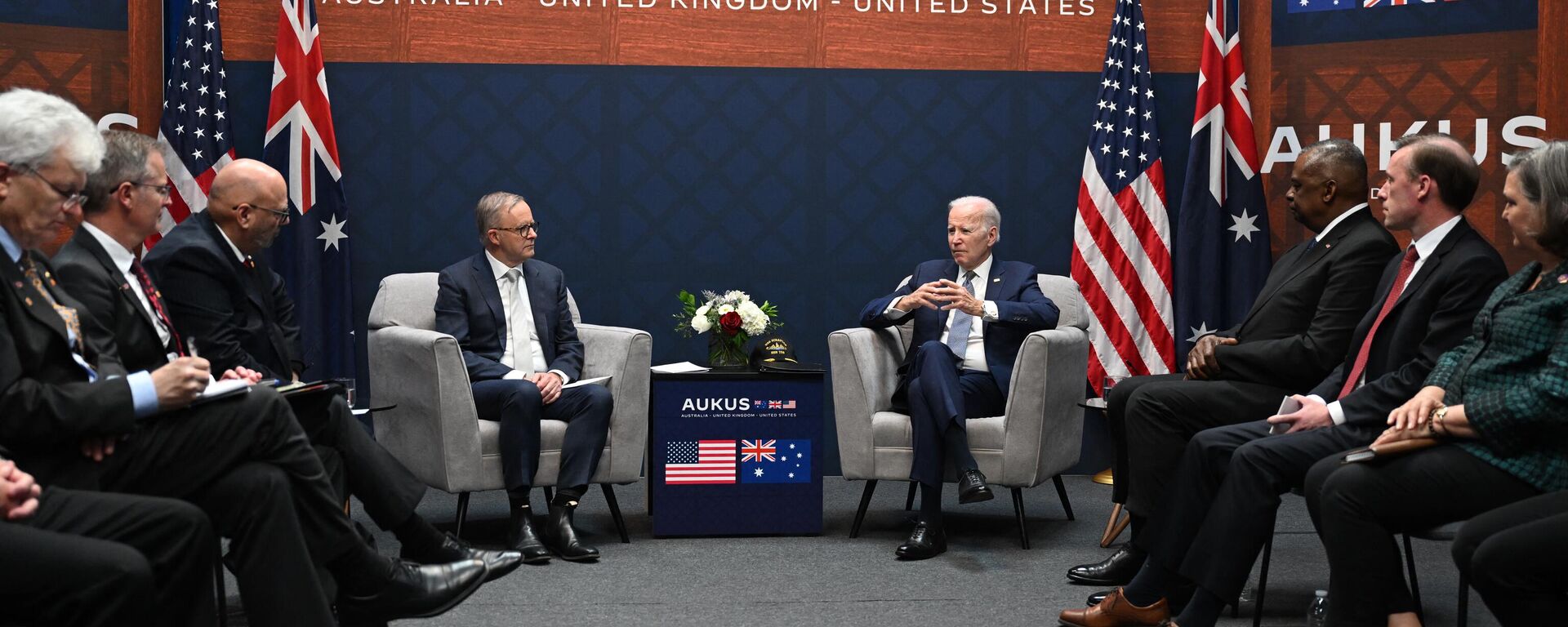https://sputnikglobe.com/20230328/new-zealand-willing-to-explore-joining-non-nuclear-aspect-of-aukus-pact-defence-minister-says-1108851439.html
New Zealand ‘Willing to Explore’ Joining 'Non-Nuclear' Aspect of AUKUS Pact, Defence Minister Says
New Zealand ‘Willing to Explore’ Joining 'Non-Nuclear' Aspect of AUKUS Pact, Defence Minister Says
Sputnik International
New Zealand is willing to 'explore’ joining the non-nuclear aspect of AUKUS pact, Andrew Little, the defence minister, said.
2023-03-28T05:46+0000
2023-03-28T05:46+0000
2023-03-28T05:46+0000
world
new zealand
aukus
nuclear
nuclear submarines
https://cdn1.img.sputnikglobe.com/img/105605/99/1056059958_0:98:1920:1178_1920x0_80_0_0_f389d1ec1c38db968a0d3dc7914bfbe6.jpg
New Zealand has flagged interest in joining the "non-nuclear component" of the trilateral AUKUS security pact between the US, Australia, and the UK, Defence Minister Andrew Little said.The aspect that Andrew Little was referring to involves sharing strategic technology pertaining to such areas as quantum computing and cyber capabilities. Territorial sea, land and airspace of New Zealand became nuclear-free zones in line with the New Zealand Nuclear Free Zone, Disarmament, and Arms Control Act 1987.According to Andrew Little, any involvement of Wellington in AUKUS “could not compromise our legal obligations and our moral commitment to nuclear-free”.When asked about the country's potential plans regarding joining the trilateral security agreement, New Zealand's Prime Minister Chris Hipkins said on March 27:The indication that New Zealand may mull becoming involved in the non-nuclear part of the AUKUS pact comes a week after the country's Foreign Minister Nanaia Mahuta visited Beijing.Mahuta said that Chinese officials reiterated their strong opposition to the AUKUS deal.“They acknowledged our position on the matter. We’re not a part of those arrangements,” Mahuta said.Regarding New Zealand's concerns that AUKUS may jeopardise the treaty of Rarotonga, also called South Pacific Nuclear Free Zone Treaty, signed on 6 August 1985, Mahuta stated:“Our concern is not to see the militarisation of the Pacific, that the treaty of Rarotonga be upheld, and that’s the basis upon which our assurances from Australia have been gained in relation to those arrangements.”The Australia-United Kingdom-United States (AUKUS) trilateral security pact, announced on September 15, 2021, entails the supply to Canberra of three American Virginia-class nuclear-powered submarines in the early 2030s, while cementing China's status as the perceived adversary of all three countries.AUKUS is composed of two so-called pillars, with the first presupposing the delivery of nuclear-powered submarines to Australia, while the second, Pillar 2, focuses on “expediting cooperation in critical technologies.” The latter pertains to areas such as “cyber capabilities, artificial intelligence, quantum technologies, additional undersea capabilities, hypersonic and counter-hypersonic”, etc,More clarity regarding the details of the three-phase plan to provide Australia with conventional nuclear submarines were unveiled on March 13 after a meeting in San Diego, California, between US President Joe Biden, Australia’s Prime Minister Anthony Albanese, and UK Prime Minister Rishi Sunak. The deal involves the deployment of at least three American and one British submarine to Australia by 2027 as a first step, as well as the creation of the necessary infrastructure and training of Australian personnel. The ultimate goal of the AUKUS pact is to jointly develop and build a new type of nuclear-powered, conventionally-armed submarine - dubbed SSN-AUKUS - for the UK and Australian navies.China slammed the three countries that created the AUKUS pact for pursuing their own geopolitical interests and completely ignoring the concerns of the international community. The US-UK-Australia deal involves the transfer of large quantities of highly enriched weapons-grade uranium from nuclear-weapon states to a non-nuclear-weapon state. Accordingly, it poses a serious risk of nuclear proliferation and violates the goals of the Non-Proliferation Treaty, said Chinese Foreign Ministry Spokesman Wang Wenbin at a briefing. Russia has also voiced its concerns regarding the AUKUS pact. "The Anglo-Saxon world with the creation of bloc structures like AUKUS, with the promotion of NATO military infrastructure in Asia, is making a serious bid for confrontation for many years," Russian Foreign Minister Sergey Lavrov said.
https://sputnikglobe.com/20230316/worst-deal-in-history-former-australian-pm-slams-aukus-submarine-purchase-1108439440.html
https://sputnikglobe.com/20230316/worst-deal-in-history-former-australian-pm-slams-aukus-submarine-purchase-1108439440.html
https://sputnikglobe.com/20230315/aukus-dividing-asia-us-uk-australian-leaders-reveal-details-of-disputed-nuclear-submarine-deal-1108385272.html
new zealand
Sputnik International
feedback@sputniknews.com
+74956456601
MIA „Rossiya Segodnya“
2023
News
en_EN
Sputnik International
feedback@sputniknews.com
+74956456601
MIA „Rossiya Segodnya“
Sputnik International
feedback@sputniknews.com
+74956456601
MIA „Rossiya Segodnya“
new zealand, willing to explore, joining non-nuclear aspect, aukus pact, andrew little, new zealand defence minister, supply to canberra, american virginia-class nuclear-powered submarines, china's status, perceived adversary,
new zealand, willing to explore, joining non-nuclear aspect, aukus pact, andrew little, new zealand defence minister, supply to canberra, american virginia-class nuclear-powered submarines, china's status, perceived adversary,
New Zealand ‘Willing to Explore’ Joining 'Non-Nuclear' Aspect of AUKUS Pact, Defence Minister Says
AUKUS, a trilateral security agreement between the US, Australia and the UK unveiled in September 2021, is composed of two ‘pillars’, with the first entailing the supply to Australia of nuclear-powered submarines (SSNs), while the second - Pillar 2 - focuses on ‘expediting cooperation in critical technologies.’
New Zealand has flagged interest in joining the "non-nuclear component" of the
trilateral AUKUS security pact between the US, Australia, and the UK, Defence Minister Andrew Little said.
“We have been offered the opportunity to talk about whether we could, or wish to, participate in the pillar-two aspect of it. I’ve indicated we will be willing to explore it, and that’s as far as that has gone," Little said in a statement provided by his office on Tuesday.
The aspect that Andrew Little was referring to involves sharing strategic technology pertaining to such areas as quantum computing and cyber capabilities. Territorial sea, land and airspace of New Zealand became nuclear-free zones in line with the New Zealand Nuclear Free Zone, Disarmament, and Arms Control Act 1987.
According to Andrew Little, any involvement of Wellington in AUKUS “could not compromise our legal obligations and our moral commitment to nuclear-free”.
“[Aukus membership] would be about the kind of technology … needed to protect defence personnel. Usually domain awareness, so surveillance technology, and radio technology that allows us to do that.”
When asked about the country's potential plans regarding joining the trilateral security agreement, New Zealand's Prime Minister Chris Hipkins said on March 27:
“New Zealand isn’t part of Aukus at this point, and we won’t be part of the nuclear submarines arrangement in any event.” Regarding the strategic technology sharing aspect of the deal, Hipkinsadded that, “we haven’t made decisions on that at this point.”
The indication that New Zealand may mull becoming involved in the non-nuclear part of the AUKUS pact comes a week after the country's Foreign Minister Nanaia Mahuta visited Beijing.
Mahuta said that Chinese officials reiterated their strong opposition to the AUKUS deal.
“They acknowledged our position on the matter. We’re not a part of those arrangements,” Mahuta said.
Regarding New Zealand's concerns that AUKUS may jeopardise the treaty of Rarotonga, also called South Pacific Nuclear Free Zone Treaty, signed on 6 August 1985, Mahuta stated:
“Our concern is not to see the militarisation of the Pacific, that the treaty of Rarotonga be upheld, and that’s the basis upon which our assurances from Australia have been gained in relation to those arrangements.”
The Australia-United Kingdom-United States (AUKUS)
trilateral security pact, announced on September 15, 2021, entails the supply to Canberra of three American Virginia-class nuclear-powered submarines in the early 2030s, while cementing China's status as the perceived adversary of all three countries.
AUKUS is composed of two so-called pillars, with the first presupposing the
delivery of nuclear-powered submarines to Australia, while the second, Pillar 2, focuses on “expediting cooperation in critical technologies.” The latter pertains to areas such as “
cyber capabilities, artificial intelligence, quantum technologies, additional undersea capabilities, hypersonic and counter-hypersonic”, etc,
More clarity regarding the details of the three-phase plan to provide Australia with conventional nuclear submarines were unveiled on March 13 after
a meeting in San Diego, California, between US President Joe Biden, Australia’s Prime Minister Anthony Albanese, and UK Prime Minister Rishi Sunak. The deal involves the deployment of at least three American and one British submarine to Australia by 2027 as a first step, as well as the creation of the necessary infrastructure and training of Australian personnel. The ultimate goal of the AUKUS pact is to jointly develop and build a new type of nuclear-powered, conventionally-armed submarine - dubbed SSN-AUKUS - for the UK and Australian navies.
China slammed the three countries that created the AUKUS pact for pursuing their own geopolitical interests and completely ignoring the concerns of the international community. The US-UK-Australia
deal involves the transfer of large quantities of highly enriched weapons-grade uranium from nuclear-weapon states to a non-nuclear-weapon state. Accordingly, it poses a serious risk of nuclear proliferation and violates the goals of the Non-Proliferation Treaty, said Chinese Foreign Ministry Spokesman Wang Wenbin at a briefing.
Russia
has also voiced its concerns regarding the AUKUS pact.
"The Anglo-Saxon world with the creation of bloc structures like AUKUS, with the promotion of NATO military infrastructure in Asia, is making a serious bid for confrontation for many years," Russian Foreign Minister Sergey Lavrov said.




